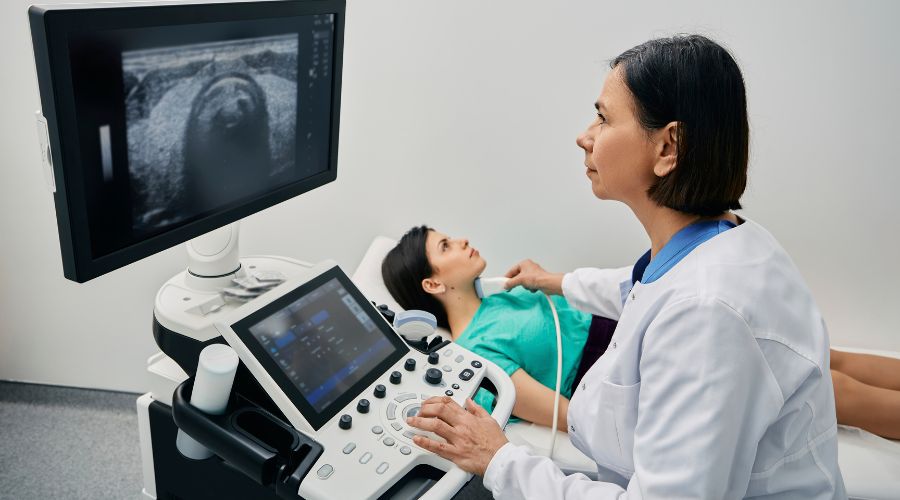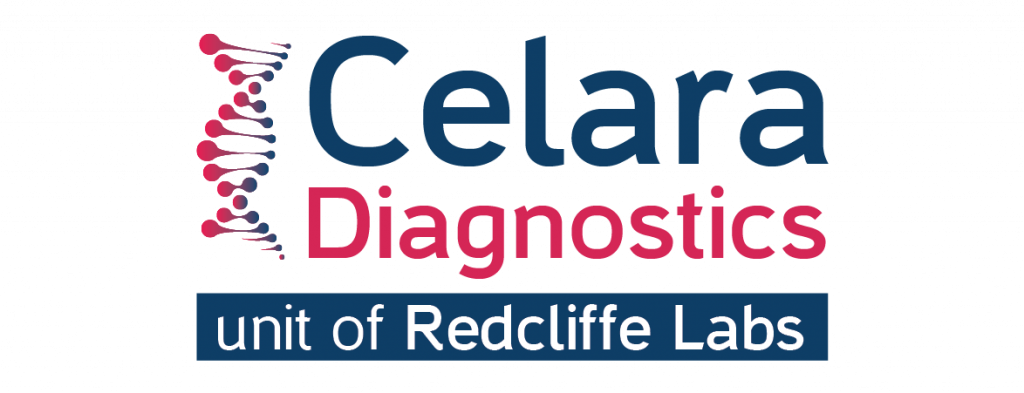Avail of diagnostic services from the comfort of your home!

An ultrasound scan, or sonography, is a noninvasive imaging test. It uses high-frequency sound waves to produce real-time images of organs, tissues, and blood flow inside the body. Unlike X-rays, ultrasound does not use radiation, which makes it safe for pregnant women and children. Ultrasound is painless, quick, and highly informative. It provides accurate insights into the body’s functioning and helps doctors make better treatment decisions.
Ultrasound scans are vital for diagnosing and monitoring various health conditions. They are widely used during pregnancy to check fetal growth, detect abnormalities, and determine the due date. They also assist in guiding procedures like biopsies.
Anyone experiencing sudden pain, swelling, or infection in internal organs may need an ultrasound. Pregnant women routinely undergo ultrasound scans to ensure the baby’s health and development. However, people with suspected gallstones, kidney stones, or liver problems are also advised to take it.
If you want an ultrasound scan in Bangalore, choose Celara Diagnostics. The professionals here will provide you with the best imaging services at affordable prices.
The key purpose of ultrasound scans in Bangalore is to diagnose and monitor various medical conditions. It allows healthcare professionals to
The preparation for an Ultrasound Scan in Bangalore depends on the type of Ultrasound done. Here are some general instructions you should know before going for the scan-
Some ultrasound scans, such as those of the thyroid, breast, or limbs, do not require special preparation before the test.
An ultrasound scan uses high-frequency sound waves to develop images of the internal organs.
A special gel is applied to the skin before the scan to improve the quality of the images. This gel removes air between the transducer and the skin, allowing sound waves to pass smoothly.
There are three main types of ultrasound scans, including
The healthcare providers use Ultrasound to monitor you and the fetus during pregnancy. The healthcare professionals use prenatal Ultrasound to:
Most healthcare specialists recommend an ultrasound at 20 weeks. The test tracks fetal growth and development during pregnancy and may also show the fetus’s biological sex.
Your healthcare provider may recommend some additional ultrasound scans in Bangalore to get answers to any questions or concerns, such as potential birth issues.
There are different types of diagnostic ultrasounds. Here are some common ones-
Each type of Ultrasound scan performs a specific medical purpose and helps in accurate diagnosis and treatment planning.
Healthcare providers use Ultrasound scans to perform certain surgeries or procedures. A common use of Ultrasound is to guide placement to sample fluid or tissue from:
An ultrasound scan in Bangalore is recommended to check various health conditions. Here is who should take the ultrasound scan-
For ultrasounds during pregnancy, the traditional 2D Ultrasound is used to create an image of the fetus. 2D Ultrasound develops outlines and flat images, which allows healthcare specialists to see the fetus’s internal organs and structures.
However, three-dimensional (3D) Ultrasound images visualize the baby’s facial features and other body parts, such as fingers and toes.
A four-dimensional (4D) ultrasound is a 3D ultrasound in motion. Healthcare providers use 3D and 4D fetal ultrasound images for medical purposes, useful in diagnosing facial or skeletal issues.
They use 3D Ultrasound for medical purposes, such as evaluating uterine polyps and fibroids.
Ultrasound scan detects various health conditions across different organs and body systems. Here are some common problems that ultrasound scans can identify:
Pregnancy-Related Issues
Abdominal and Digestive Disorders
Pelvic & Reproductive Conditions
Heart & Vascular Issues (via Doppler or Echocardiography)
Thyroid Conditions
Soft Tissue and Musculoskeletal Injuries
The ultrasound scan price in Bangalore starts from Rs 1000. You can book your appointment with us online.
We provide comprehensive diagnostic solutions right from your home. We focus on personalized patient care, and our staff is available 24/7 to resolve all your queries. Our team of professional doctors and technologists provides the best diagnostic experience. In addition, you can easily access your reports anywhere and anytime online.
The ultrasound scan price in Bangalore starts from Rs 1000. You can book your appointment online.
The ultrasound scan uses sound waves to develop images of various organs. It diagnoses various conditions, monitors pregnancies, and guides procedures.
3. Can I eat before an ultrasound?
Whether you can eat or not before an ultrasound depends on the ultrasound you will have. Some ultrasounds, such as those of the liver, gallbladder, spleen, and pancreas, require fasting for a few hours and drinking water, while others, like those of the kidney, uterus, and ovaries, do not require any special preparation.
The ultrasound scan can detect various diseases like liver tumors, cysts, fatty liver, gallstones, kidney stones, thyroid nodules, ovarian cysts, uterine fibroids, various infect multipleregnancy complications, and more.
5. Can Ultrasound detect kidney failure?
Yes, ultrasound scans can detect signs of kidney failure or damage. They help identify changes in kidney size, shape, and structure.
Most ultrasound reports are available in 30 minutes to 1 hour. As soon as the scan is finished, the radiologist analyzes the pictures and creates the ultrasound result report.

Celara Diagnostics provides MRI, CT scans, ultrasound, X-ray, mammography, lab, cardiology, gastroenterology, and neurology services.
For any Queries or Grievances Contact: Mr. Chandan
Copyright © 2026 Celera Diagnostics,
All rights Reserved.